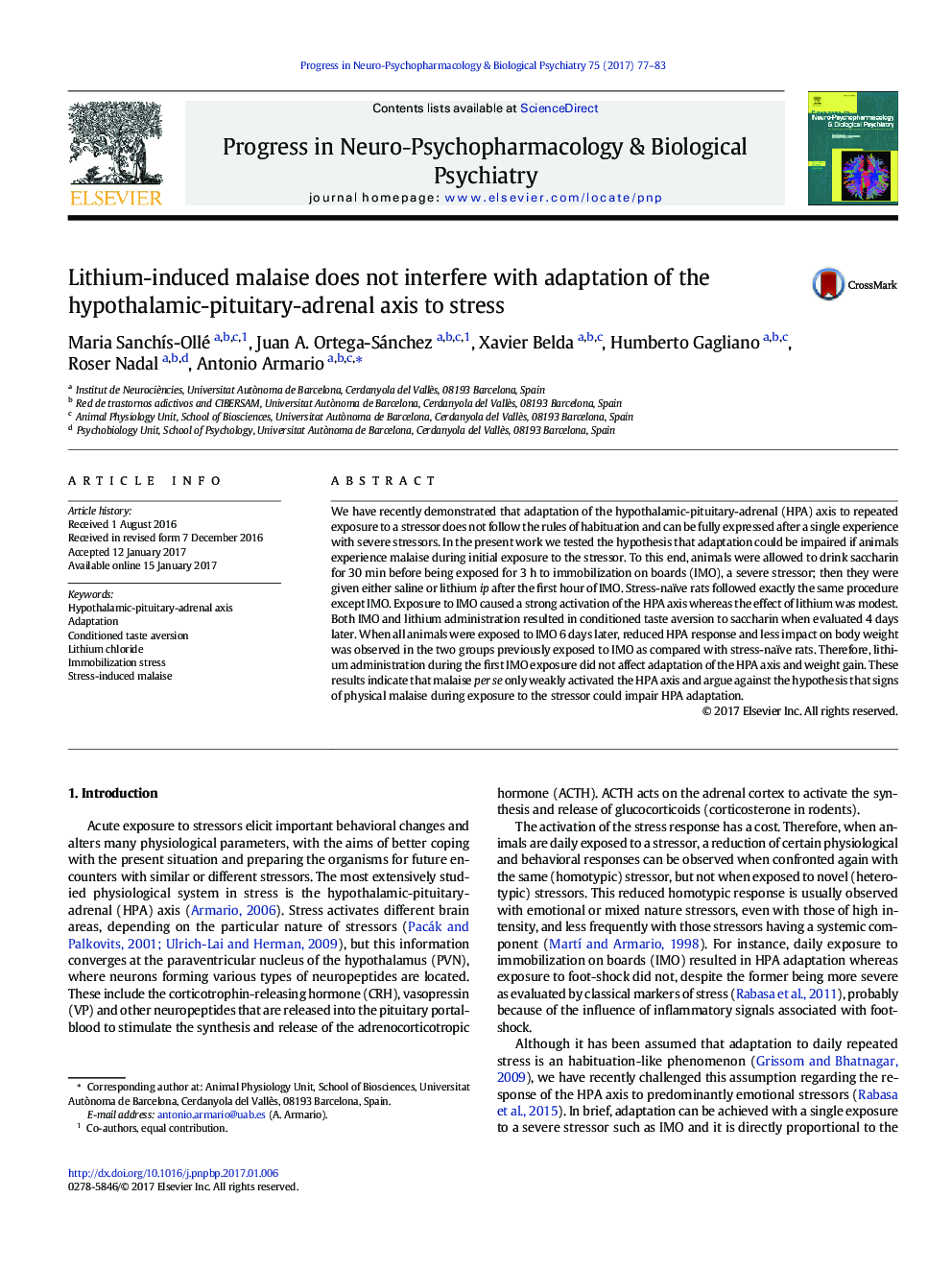| کد مقاله | کد نشریه | سال انتشار | مقاله انگلیسی | نسخه تمام متن |
|---|---|---|---|---|
| 5557978 | 1561019 | 2017 | 7 صفحه PDF | دانلود رایگان |
- Lithium chloride (ip) causes conditioned taste aversion (CTA) for saccharin.
- Lithium weakly activates the hypothalamic-pituitary-adrenal (HPA) axis.
- Immobilization (IMO) stress causes strong HPA activation and CTA.
- Lithium given during a first IMO does not affect HPA adaptation to the same stressor.
We have recently demonstrated that adaptation of the hypothalamic-pituitary-adrenal (HPA) axis to repeated exposure to a stressor does not follow the rules of habituation and can be fully expressed after a single experience with severe stressors. In the present work we tested the hypothesis that adaptation could be impaired if animals experience malaise during initial exposure to the stressor. To this end, animals were allowed to drink saccharin for 30Â min before being exposed for 3Â h to immobilization on boards (IMO), a severe stressor; then they were given either saline or lithium ip after the first hour of IMO. Stress-naïve rats followed exactly the same procedure except IMO. Exposure to IMO caused a strong activation of the HPA axis whereas the effect of lithium was modest. Both IMO and lithium administration resulted in conditioned taste aversion to saccharin when evaluated 4Â days later. When all animals were exposed to IMO 6Â days later, reduced HPA response and less impact on body weight was observed in the two groups previously exposed to IMO as compared with stress-naïve rats. Therefore, lithium administration during the first IMO exposure did not affect adaptation of the HPA axis and weight gain. These results indicate that malaise per se only weakly activated the HPA axis and argue against the hypothesis that signs of physical malaise during exposure to the stressor could impair HPA adaptation.
Journal: Progress in Neuro-Psychopharmacology and Biological Psychiatry - Volume 75, 3 April 2017, Pages 77-83
